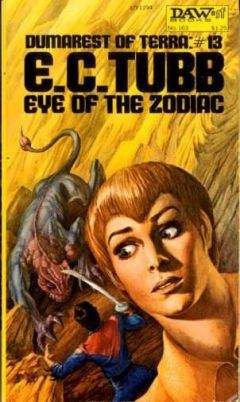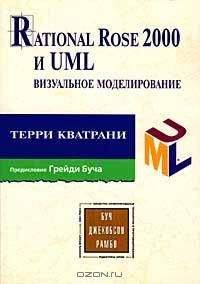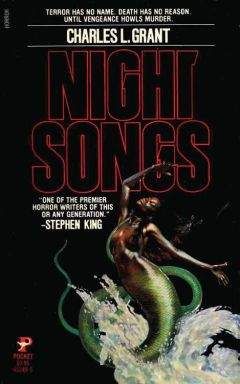The houses were interesting, strongly built, solid, patterned on those he had seen in the town. All carried some form of decoration, a bow, a bull, the design of a crab, others. From a smithy came the sound of hammering, a brawny man nodding as Eidhal halted in the open doorway.
"The spear-heads will be ready soon, Varg. Now I must fashion knives for the new men."
"Couldn't they wait?"
The smith grinned as he swung his hammer. "Remember your own time, Varg. Could you?"
A knife, the badge of manhood, edged and pointed steel worn proudly in the belt for all to see. Dumarest had wondered why he had been allowed to retain his own weapon. Now he knew.
They moved on, past houses closed and snug, others with open fronts in which women sat spinning, turning pottery, grinding grain into flour with the help of men who sweated as they turned the heavy millstones. A busy, active community in which all shared the labor and the reward.
Dumarest looked thoughtfully at a long, low, heavily-shuttered building which stood apart from the others.
"What is that?"
"The Alphanian Chamber."
"And that is?"
"The special place where ceremonies are conducted. Where the past is remembered."
Where records would be kept, and items rendered sacred by rarity and time would be housed. Alphanian… alpha… a word Dumarest knew meant the beginning.
"Varg, what do you people call yourselves?"
"We are of Ayat."
"And?" Dumarest pressed the question as the man remained silent. "Are you the Original People?"
"I-let me show you the fields."
Not an admission, but admission enough. And yet, a mystery remained. The name, Ayat, a cover perhaps. But why had Leon claimed he came from Nerth?
The fields were well kept, the rows of beans clear of weeds. Others held ripening grain, root crops, bushes yielding nuts and fruit. Domestic animals would be kept at the lower end of the valley. Dumarest watched as boys and young girls shooed away birds. Only when older, and puberty exercised its demands, would they be kept apart.
Eidhal paused as a man came shambling down the path. He was tall, big, shoulders wide beneath the drab gray of his smock. His face was vacuous, the eyes empty of intelligence, his mouth wet with spittle. The lips twisted into an inane grin as he halted before Dumarest.
"Give… you give…"
"He wants something sweet," said Eidhal. He rummaged in a pocket and found a dried fruit. "Give him this."
A splayed hand snatched the morsel and thrust it into the slavering mouth.
"That's all, Odo," said Eidhal as the hand reached out again. "Get back to your work."
"Give… you give…"
"No! To work now!"
"Odo want…"
"Odo will be beaten if he does not do as he is told." Eidhal was firm, but gentle. "Come on, now, back to work."
Dumarest stood to one side as the guard conducted the idiot back into the fields.
"A ghost," Eidhal explained as he returned. "A child who will never be a man."
"How did it happen?"
"It happens." Eidhal was grim. "Sometimes a boy grows in body, but not in mind. He is given every chance, as that one is there." He pointed to where a boy wore a yellow sash. "If a lad thinks he is unready for the ordeal, he is allowed to wait and no shame comes to him, or to his parents. If still he refuses, then he wears gray."
"Do many refuse?"
"In my lifetime, only one. He was sent to clear thorn and live in isolation. He died by his own hand."
"And Odo?"
"He was a bright lad, smart, keen and eager to become a man. The pride of all who knew him. I was on duty at the time. When dawn came, he was as you see him now." He added, bleakly, "It would have been better had he vanished."
An idiot condemned to a life of unending labor, castrated to avoid the continuation of his line, a man who had become little more than an animal. Despised, rejected, yet needed as an essential source of labor. A ghost.
And yet, Eidhal had been kind. Dumarest wondered if there was some relationship between them. It was more than likely; in any closed community blood-ties had to be plentiful. His son, perhaps, or the son of a sister, a cousin.
Kind-yet he would have been more merciful had he thrust his spear into Odo's heart.
* * * * *
Iduna was waiting as they returned. She ran forward, eyes anxious as they looked at the dressing on Dumarest's scalp.
"Earl! I was so worried. Your head?"
"Is fine. And you?"
She had lost the ghastly pallor of exhaustion. Her hair was a smooth russet helmet about her skull, the eyes clear, her skin carrying the faint sheen of health.
Like himself she wore purple, new garments which accentuated the lines of her figure.
She fell into step beside him, Varg Eidhal discreetly falling back. He, like them all, thought her to be Dumarest's woman.
"I've been listening," she said. "The woman talked when they thought I was asleep. Earl, they don't intend to let us go!"
"Did they say that in so many words?"
"They didn't have to. They talked of what I could do, and how I could be fitted into their community. They even speculated on a probable mate." Her voice carried undertones of disgust. "As if I had been a brood mare-good only to provide new children. My body used to increase their numbers."
And to provide a new source of genes. A cross would produce healthy offspring.
"Earl, what are we going to do?"
"We wait."
"For how long? Don't you understand what I'm saying? They spoke of me-not you. Whether I had any skills in weaving, pottery making, cooking, sewing of skins and cloth. All day they've been at it, questioning, probing, and never once did they mention you. They don't need you, Earl. I think they intend to kill you."
And, probably, her. The women had been gossiping, speculating, but the decision would not be theirs.
He said, "When they talked, did they mention a name?"
"A name?"
"That of this valley. Nerth."
"No." She was positive… "I asked them where we were and they wouldn't answer. But later, I heard one tell another that these were exciting times in Ayat." Her fingers tightened on his arm. "Earl, I'm afraid. We must escape before it is too late."
Escape into a wilderness without food, a map, or weapons. A short start with guards following, ready with their spears.
"We have to wait," he said patiently. "Take each thing as it comes. When our chance comes, we'll take it."
Empty words, but they seemed to give her courage.
"Wait," she said, brightening. "Yes, Earl, we must wait. But be careful. Don't let them hurt you. Promise them anything, do anything, but stay alive!"
An unexpected reaction, but he could guess at her latent hysteria. As a bell began to toll from the Alphanian Chamber, Eidhal edged forward.
"The curfew," he said. "And the summons. It is time for you to return to your quarters."
Them, but not others. Dumarest watched with interest as a stream of men and women made their way towards the enigmatic building. To participate in ceremonies, perhaps. To dwell on the beginning, if the name of the place meant what he suspected.
Later, he stood at the window of his room and looked at the stars. It was late and he could hear no sound of movement outside. The bars were firm and resisted his tug. The door was locked-a pail had been provided for natural needs. Only the roof remained.
Dumarest examined it as he stood on the end of the upturned bed. Thick rafters were crossed by thinner members, supports for the tiles which closed the building against the sky. With his knife he eased one free, set it gently on the floor, climbed up to remove others which he set outside. Within minutes he had a hole large enough to pass his body through, one which he could seal again from within.
A weakness in his prison, but those accustomed to regarding only doors and windows as a means of egress would have overlooked the obvious. And any prisoners, held in this place, would provide their own mental chains.
He jumped from the roof, landing as lightly as a cat, freezing, crouching to spot the silhouette of any guard against the sky.
He saw nothing. Either there were no guards, or they were on the other side of the building facing the door.
Rising, he ran quickly towards the Alphanian Chamber. It rested as a somber bulk beneath the stars, a fitful gleam of yellow light showing through the cracks of shutters, the join of the great double door.
It was held by a simple lock which yielded to the point of Dumarest's knife and he pushed one of the leaves open, slipping inside to close it behind him.
Turning, he looked at a museum. A church. It held something of both.
There were alcoves in which were painted designs fashioned of gleaming points, joined and surrounded by a tracery of lines. The depiction of animals, a woman, scales, a scorpion. Twelve of them, each faced by a thin stream of incense rising from bowls of hammered brass.
There were cases in which rested ancient books, strange artifacts, rocks and scraps of fabric. There was what could only be an altar, a high place set to the rear of a low dais. A painting of a woman, weeping. Another of fiery destruction. A third of something bright and wonderful emerging from a shattered egg.
The wall behind the altar was covered. The curve continued as it rose to merge into a smooth dome, a hemisphere broken only by the main part of the chamber. Beneath it, set in precise relationship to the apex of the dome, rested a squat construction which gleamed with polish.
Dumarest gave the place one quick glance, found it deserted of life, and moved around the walls studying the designs. The figures matched the mnemonic he had learned so long ago, the Ram, the Bull, the Heavenly Twins… the Crab, the Lion… The signs of the zodiac.
The thing for which he had been searching. And useless.
They were too abstract, the points which could only have been stars, too numerous and devoid of true relationship. He had hoped for set constellations easily remembered, signposts in the sky which would point the way to Earth. Instead, he looked at artistic impressions which could have no association with reality. Again he walked along the walls, looking, studying, trying to remember.
Had there been an archer in the skies? A man with the body of a horse drawing a bow? A woman emptying a pot of water? A pair of twins. A set of scales? A crab?
Not actual representations, but a pattern of stars, bright points which if followed with a marker would have left such designs. He remembered nothing, and such rudimentary portraits could not have been forgotten.
Impatiently, Dumarest moved to the books within the cases. The doors were closed and he forced one, leafing through a volume which smelt of mold. The pages were faded, stained. A record, as far as he could see, of names, births, deaths, matings. Another held details as to plantings, yields, types and varieties of vegetation. A third held rough designs of primitive, hand-operated machinery, grinders, scrapers, a potter's wheel.
He replaced it, closed the doors, moved towards the altar and the odd device it contained. Here, perhaps, he would find the answer. The lost but all important coordinates by which Earth could be found.
As he neared it he heard the sound of muffled voices, the creak of the opening doors. Dumarest looked upwards, searching for a place to hide, but the dome was unbroken.
To run was to fight. To fight at this time was to die. When Phal Vestaler entered the Alphanian Chamber attended by a score of guards, he found Dumarest kneeling before the altar, his head bowed, hands clasped in an attitude of supplication.





![Rick Page - Make Winning a Habit [с таблицами]](https://cdn.my-library.info/books/no-image-mybooks-club.jpg)